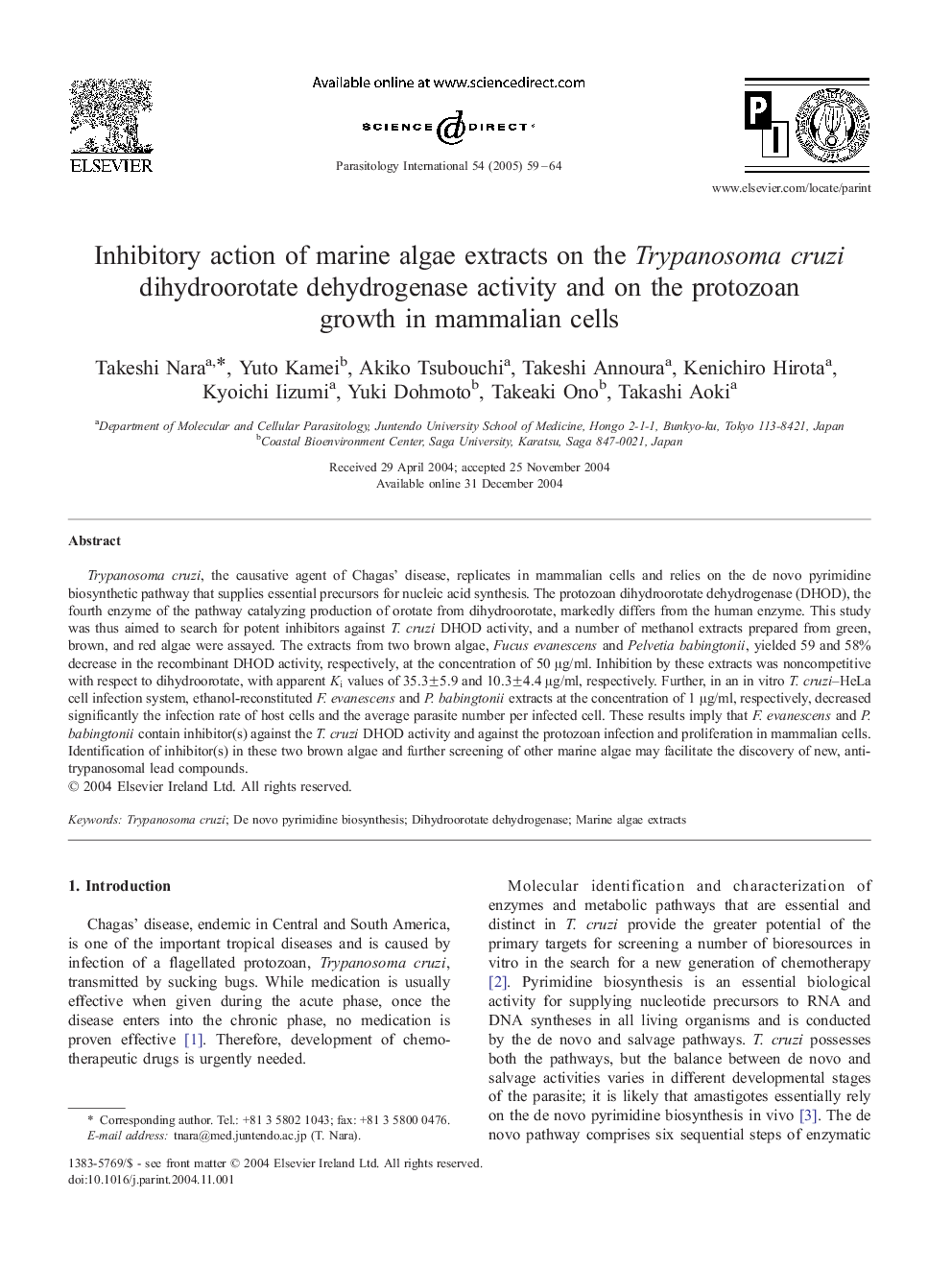| Article ID | Journal | Published Year | Pages | File Type |
|---|---|---|---|---|
| 9284143 | Parasitology International | 2005 | 6 Pages |
Abstract
Trypanosoma cruzi, the causative agent of Chagas' disease, replicates in mammalian cells and relies on the de novo pyrimidine biosynthetic pathway that supplies essential precursors for nucleic acid synthesis. The protozoan dihydroorotate dehydrogenase (DHOD), the fourth enzyme of the pathway catalyzing production of orotate from dihydroorotate, markedly differs from the human enzyme. This study was thus aimed to search for potent inhibitors against T. cruzi DHOD activity, and a number of methanol extracts prepared from green, brown, and red algae were assayed. The extracts from two brown algae, Fucus evanescens and Pelvetia babingtonii, yielded 59 and 58% decrease in the recombinant DHOD activity, respectively, at the concentration of 50 μg/ml. Inhibition by these extracts was noncompetitive with respect to dihydroorotate, with apparent Ki values of 35.3±5.9 and 10.3±4.4 μg/ml, respectively. Further, in an in vitro T. cruzi-HeLa cell infection system, ethanol-reconstituted F. evanescens and P. babingtonii extracts at the concentration of 1 μg/ml, respectively, decreased significantly the infection rate of host cells and the average parasite number per infected cell. These results imply that F. evanescens and P. babingtonii contain inhibitor(s) against the T. cruzi DHOD activity and against the protozoan infection and proliferation in mammalian cells. Identification of inhibitor(s) in these two brown algae and further screening of other marine algae may facilitate the discovery of new, anti-trypanosomal lead compounds.
Related Topics
Life Sciences
Immunology and Microbiology
Parasitology
Authors
Takeshi Nara, Yuto Kamei, Akiko Tsubouchi, Takeshi Annoura, Kenichiro Hirota, Kyoichi Iizumi, Yuki Dohmoto, Takeaki Ono, Takashi Aoki,
